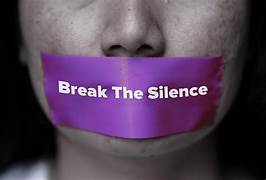
Depression is more than just feeling sad—it is a complex mental health disorder that affects millions of people worldwide. Despite its prevalence, depression remains a stigmatized and often misunderstood condition. Many individuals struggle in silence, fearing judgment or misunderstanding from those around them. This article aims to break that silence by providing an in-depth understanding of depression and its symptoms.
What Is Depression?
Depression, clinically known as major depressive disorder (MDD), is a mental health condition that impacts mood, thoughts, and overall well-being. It is characterized by persistent sadness, loss of interest in activities, and a range of emotional and physical symptoms. Unlike temporary feelings of sadness or grief, depression lingers for weeks, months, or even years and can severely disrupt daily life.
Common Symptoms of Depression
Depression manifests differently in each individual, but some common symptoms include:
- Persistent Sadness or Low Mood
One of the most recognized signs of depression is a deep and persistent sadness. This feeling may come with hopelessness, emptiness, or despair. - Loss of Interest or Pleasure in Activities
People with depression often lose interest in activities they once enjoyed, such as hobbies, socializing, or even spending time with loved ones. This is known as anhedonia. - Changes in Appetite and Weight
Depression can lead to significant changes in appetite, resulting in weight loss or weight gain. Some people may lose their desire to eat, while others may overeat as a way of coping. - Sleep Disturbances
Insomnia (difficulty sleeping) and hypersomnia (excessive sleeping) are common in depression. Some individuals find it hard to fall asleep, while others sleep excessively but still feel fatigued. - Fatigue and Low Energy
A person with depression often feels drained, even after resting. Simple tasks such as getting out of bed or doing household chores can feel overwhelming. - Difficulty Concentrating
Depression affects cognitive function, making it difficult to focus, make decisions, or remember things. This can impact work, school, and daily responsibilities. - Feelings of Guilt or Worthlessness
People with depression may experience intense guilt over past events or feel as though they are a burden to others. This can lead to self-blame and low self-esteem. - Physical Symptoms
Depression is not just mental—it has physical symptoms as well. Chronic pain, headaches, digestive issues, and muscle tension are all common in individuals with depression. - Thoughts of Death or Suicide
In severe cases, depression can lead to suicidal thoughts or behaviors. It is crucial to seek immediate help if someone expresses feelings of wanting to harm themselves.
Breaking the Stigma
Many people suffering from depression hesitate to seek help due to stigma or misconceptions. Society often portrays depression as a weakness or something that can be overcome with willpower. However, depression is a medical condition that requires treatment, just like any physical illness.
Seeking Help and Treatment
Depression is treatable with therapy, medication, lifestyle changes, and support systems. If you or someone you know is struggling, reaching out to a mental health professional can be the first step toward recovery.
Breaking the silence around depression is essential. By fostering open conversations and educating ourselves, we can create a world where those struggling feel supported and empowered to seek help.